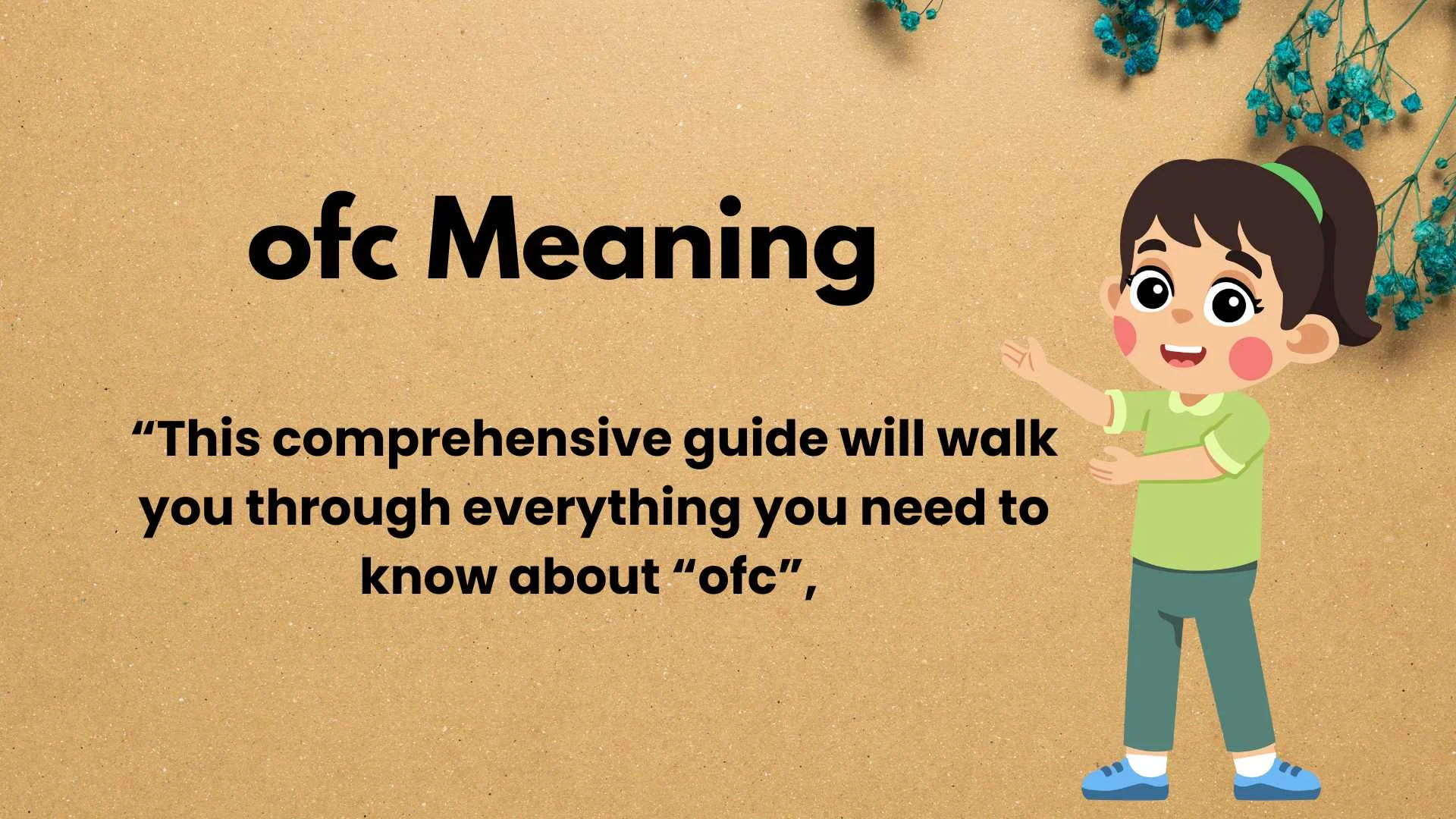Language is constantly evolving—especially in the fast-paced world of online communication. One abbreviation that’s frequently used in text messages, social media, and digital chats is “ofc”. If you’ve ever seen this short form and wondered what it means, how to use it, or when to avoid it, you’re not alone.
This comprehensive guide will walk you through everything you need to know about “ofc”, including:
- What “ofc” stands for
- Its proper use in different settings
- Synonyms and alternatives for varied tones
- Professional vs casual usage examples
- Common misunderstandings
By the end of this article, you’ll be able to use “ofc” and its alternatives like a pro—whether you’re chatting with friends or composing a business email.
🧾 What Does “ofc” Mean?
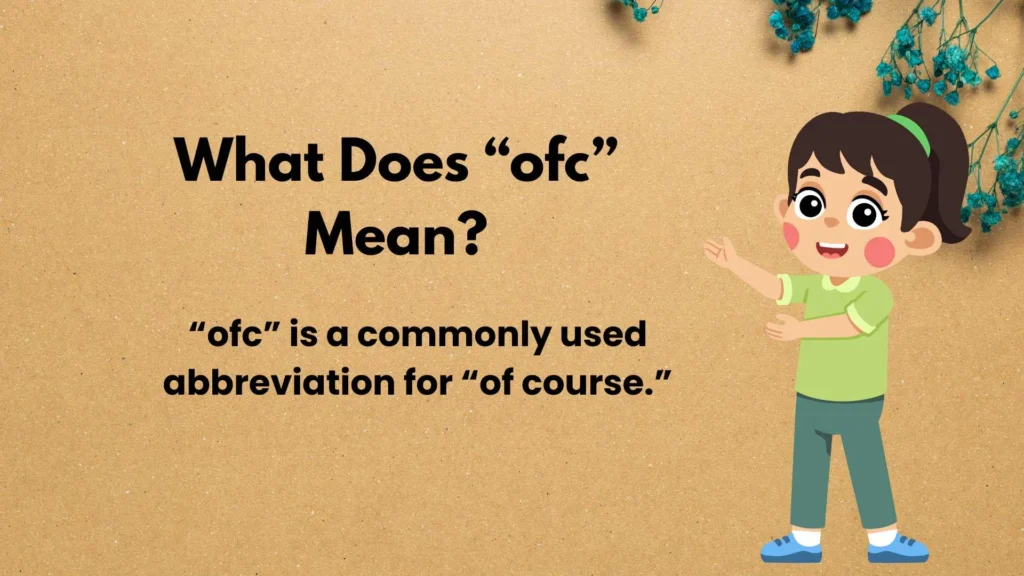
“ofc” is a commonly used abbreviation for “of course.”
It is often used in:
- Text messaging
- Chat apps like WhatsApp, Messenger, Discord
- Social media replies and comments
- Casual email replies or DMs
It’s a shorthand way of affirming something, expressing agreement, or emphasizing that something is obvious or expected.
✍️ Example:
Friend: “Will you be at the party tonight?”
You: “Ofc! Wouldn’t miss it.”
🧠 Why People Use “ofc” in Text
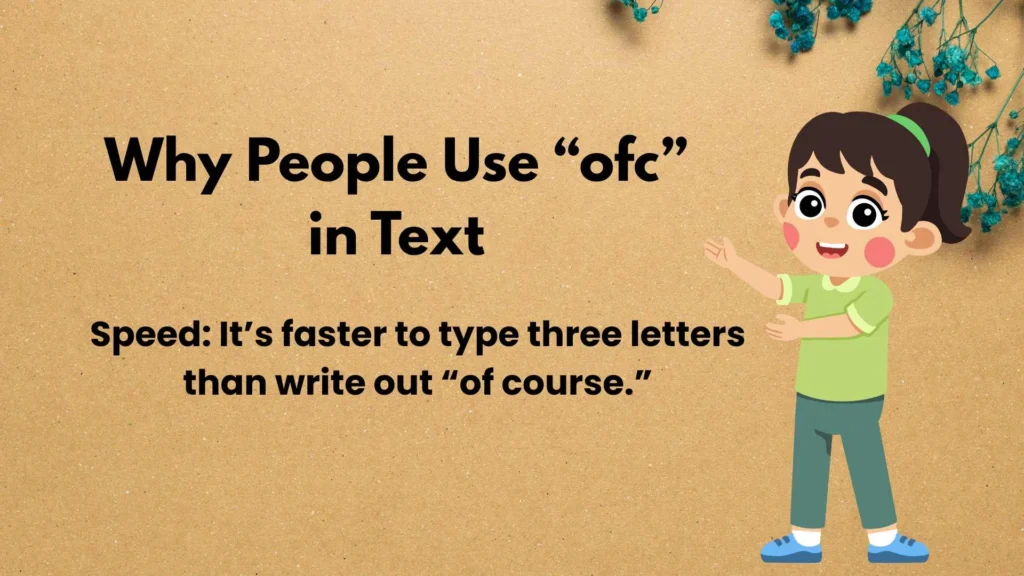
- Speed: It’s faster to type three letters than write out “of course.”
- Casual tone: It fits relaxed, informal communication.
- Space-saving: Especially useful in character-limited platforms like Twitter/X or texting.
❗Is “ofc” Always Appropriate?
Not exactly. While it works well in casual settings, it can come across as too informal in professional communication.
Here’s a breakdown:
| Context | Usage of “ofc” |
|---|---|
| Friends texting | ✅ Acceptable |
| Workplace group chat | ⚠️ Use caution |
| Business email | ❌ Not recommended |
| Academic writing | ❌ Never use |
| LinkedIn post | ⚠️ Use full form |
🔄 Alternatives to “ofc” Based on Tone & Formality
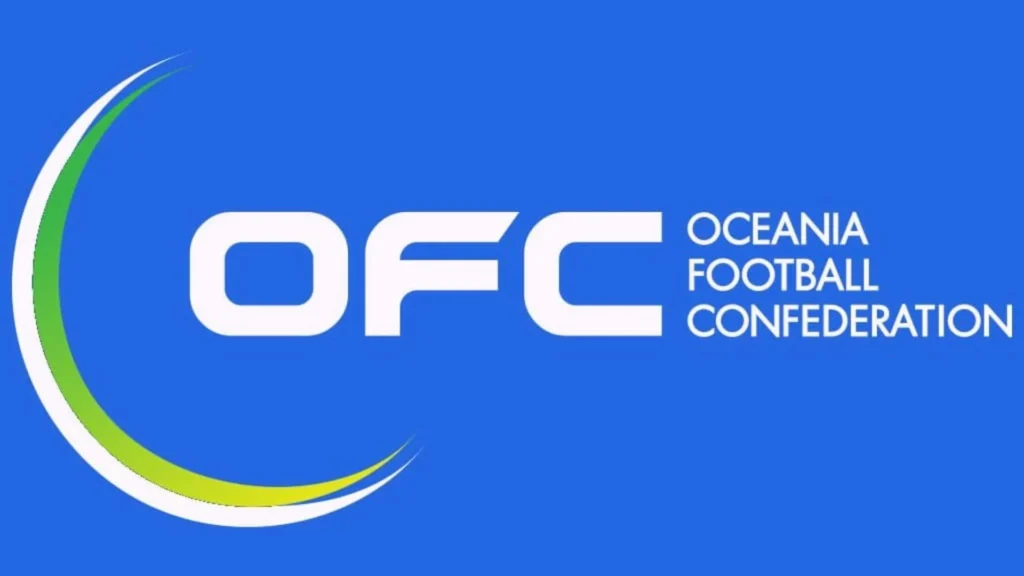
Sometimes, “ofc” isn’t the best choice—especially when you want to sound polite, respectful, or professional.
Here are 10 well-crafted alternatives to “ofc,” including the tone and when to use each:
1. Certainly ✅ (Formal / Polite)
Use in: Business communication, customer support, formal replies.
📝 “Certainly, I’ll send over the files by 5 PM.”
2. Absolutely ✅ (Warm / Confident)
Use in: Team collaboration, encouraging tone, affirmations.
📝 “Absolutely, let’s make this launch a success.”
3. Of course ✅ (Neutral / Friendly)
Use in: Safe for most settings. Balanced tone.
📝 “Of course, happy to help with that.”
4. Definitely ✅ (Casual / Assuring)
Use in: Casual emails, messages, online posts.
📝 “Definitely, I’ll be there.”
5. No doubt about it ✅ (Emphatic / Supportive)
Use in: Personal messages, team chats, pep talks.
📝 “No doubt about it—we’re going to win this pitch.”
6. Without a doubt ✅ (Assured / Sincere)
Use in: Public speaking, written essays, opinion pieces.
📝 “Without a doubt, she’s one of the best in her field.”
7. Naturally ✅ (Charming / Sophisticated)
Use in: Creative writing, relaxed formal conversations.
📝 “Naturally, we considered that before making the decision.”
8. Sure thing ✅ (Casual / Friendly)
Use in: Quick replies among friends or co-workers.
📝 “Sure thing, I’ve got your back.”
9. For sure ✅ (Trendy / Laid-back)
Use in: Youth slang, informal chats, social media.
📝 “For sure, that movie was incredible.”
10. You bet ✅ (Cheerful / Confident)
Use in: Personal tone, friendly conversations.
📝 “You bet I’ll be cheering you on!”
💡 When Should You Avoid Using “ofc”?
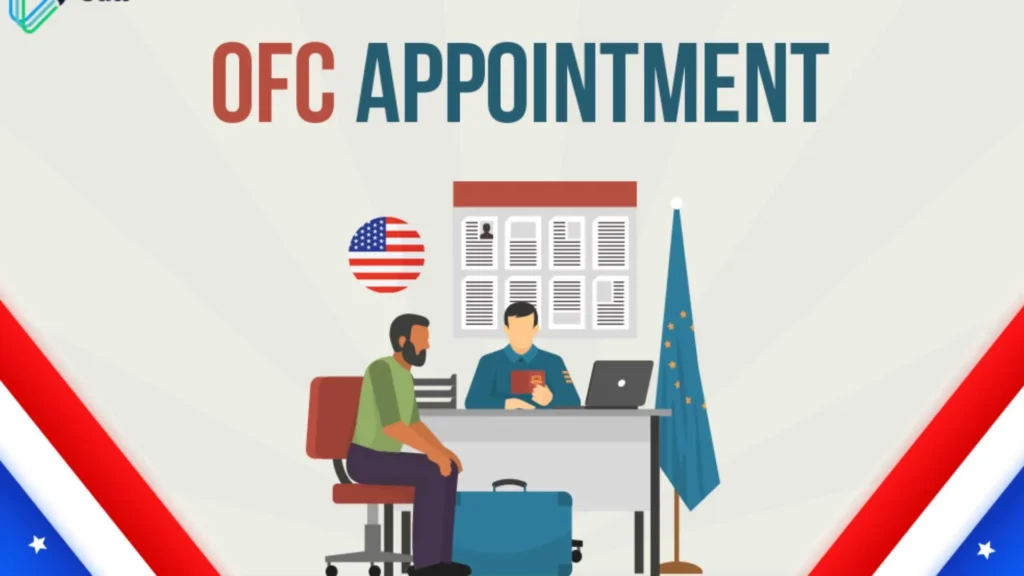
Although common, “ofc” can be misunderstood or come off as dismissive in some scenarios. Avoid using it when:
- You’re emailing a client or employer
- You’re responding to sensitive topics
- You’re communicating with non-native English speakers (who might not know internet lingo)
- You want to sound genuine or deeply respectful
🧭 Tone Nuance: Choosing the Best Alternative
Choosing between “ofc” and its alternatives depends on three key factors:
1. Who You’re Talking To
- Friends or peers? “ofc”, “sure thing”, or “for sure” work well.
- Colleagues or clients? Use “certainly”, “of course”, or “definitely”.
2. How Important the Topic Is
- Trivial request → “ofc” or “you bet” is fine.
- Serious discussion → “absolutely” or “without a doubt” adds weight.
3. Your Desired Tone
- Friendly = “sure thing”
- Sincere = “naturally”
- Formal = “certainly”
🛑 Common Mistakes With “ofc”
Here are some real-world misuses and what to do instead:
| Incorrect Use | Why it’s wrong | Better Option |
|---|---|---|
| “ofc we will discuss tomorrow’s client issue” | Too informal for a client message | “Of course, we will discuss the issue tomorrow.” |
| “ofc, but i’m not sure” | Sounds sarcastic or unclear | “Sure, though I’m not entirely certain.” |
| “OFC he messed up again 😤” | All caps = Shouting | “Of course he messed up again 😤” |
📈 2025 Insight: How “ofc” Has Evolved
In 2025, linguistic trends show that abbreviations like “ofc” are being replaced with emoji-embedded responses and AI-suggested text replies. For example:
- 🔄 “ofc 😊” has become a common shorthand on WhatsApp.
- AI keyboards (like Gboard, SwiftKey) now autocomplete “ofc” to “Of course 👍” or “Absolutely ✅” depending on sentiment prediction.
Still, “ofc” holds ground among Gen Z and digital-native professionals, especially in Slack, Discord, and gaming chats.
🎯 Summary: Mastering “ofc” and Its Contextual Usage
Let’s recap:
- “ofc” = of course (used in informal digital communication)
- Works best in casual conversations
- Replace with professional alternatives in formal or business settings
- Understand tone, audience, and context to pick the right synonym
- Stay current with evolving digital communication styles in 2025
📝 10 Quick Examples in Action
- ofc I’ll send you the notes tonight.
- Absolutely! Let me grab my laptop.
- Certainly, I’ll get back to you shortly.
- Sure thing, let’s meet at 5.
- You bet it’s going to be fun!
- Naturally, we included that in the plan.
- Definitely, I’d recommend it.
- For sure, that app is useful.
- Of course, I’ll attend the meeting.
- Without a doubt, you deserve the promotion.
📌 Final Thoughts
Using abbreviations like “ofc” can make your messages feel fast and casual, but knowing when and how to use alternatives will help you communicate with clarity, confidence, and style—across any platform or audience.
Language is not just about what we say—it’s about how we say it, and why. With this guide, you’re now equipped to master that subtle art.

